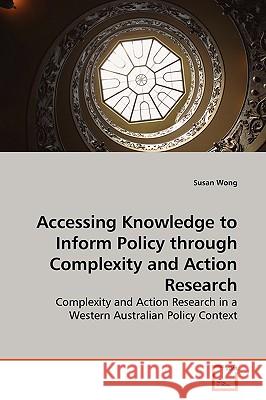Accessing Knowledge to Inform Policy through Complexity and Action Research » książka
Accessing Knowledge to Inform Policy through Complexity and Action Research
ISBN-13: 9783639032239 / Angielski / Miękka / 2009 / 332 str.
How do governments use knowledge to informpolicy-making and policy-implementation? What arethe epistemological aspects and assumptions madewithin the parameters of the classical scientificparadigm that filter the use of knowledge? Thisstudy argues that knowledge formed within thisparadigm, usually generated at a distance, has beenindividuated, detached, segmented and abstracted. When used to inform policy, such knowledge creates anarrow ?standardising gaze? that ?disciplines?communities to conform to dominant social behaviourand beliefs. Case studies are used to demonstratethat the two major models of development, as productsof this paradigm, employ this gaze renderingreplicability difficult if not impossible. Thesemodels are the top-down and bottom-up approach thatare epitomised by the Silicon Valley model andtelecentre movement respectively. How this gazeinhibits/facilitates development in policyimplementation in regional development is thenexamined in the Goldfields Esperance region inWestern Australia. An holistic approach usingcomplex adaptive systems and action research is usedto understand the multidisciplinary aspects involvedin development.











